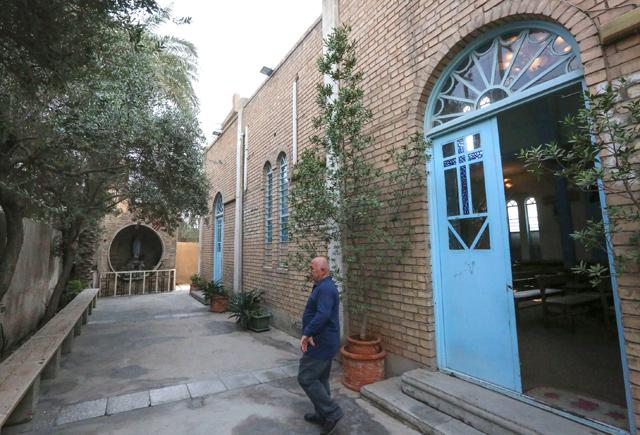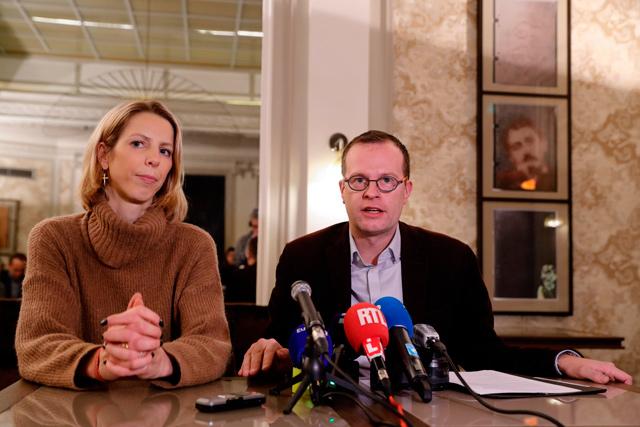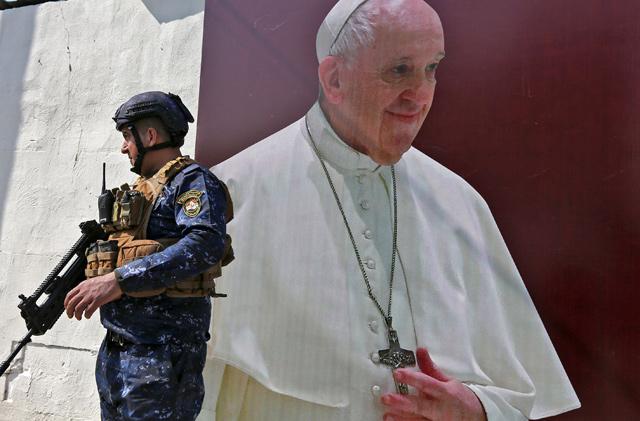You are here
Iraqi bishop urges US aid for frontline community
By AFP - Nov 29,2017 - Last updated at Nov 29,2017
WASHINGTON — With the Daesh terror group routed at last, one of the oldest Christian communities in the Middle East has a chance to reoccupy its ancestral towns.
But the Chaldean and Syriac people of the Nineveh plain in Iraq need support to rebuild their homes and are still anxious that fighting will return.
Bashar Warda, the Chaldean Archbishop of Erbil, hopes President Donald Trump’s administration will redirect US aid to his persecuted people.
And, in an interview in Washington with AFP, he suggested Christians could help quell tensions on frontline between Iraqi and Kurdish forces.
US Vice President Mike Pence and the ambassador to the UN, Nikki Haley, have suggested redirecting funds from UN aid agencies to Christian charities.
But with almost 20,000 Iraqi Christian families — around 100,000 people — driven from their homes, the bishop is calling for urgent action.
“This is a just case,” he told AFP of his people. “They are persecuted, they are marginalised and they are in need.”
Iraqis of all religions, of course, suffered greatly under Saddam Hussein’s dictatorship and the conflicts that followed his overthrow in 2003.
But smaller minorities, like the Christians and their neighbours the Yazidi, were targeted by extremists in the latest round of bloodletting.
Frontline diplomacy
Daesh unleashed what US officials have branded a genocidal campaign.
For Warda and his supporters in US-based charity and church movements, it is thus only fair to ask Washington to treat their case differently.
Iraq’s Kurds have an autonomous region and militia that shielded them and the minority refugees they sheltered from the recent violence.
The country’s Arab Shiite majority is the focus of the Baghdad government’s rebuilding efforts and receives aid from nearby Iran.
And even the Sunni Arabs, some of whom fell under Daesh’s sway, will be able to count on some support from wealthy Gulf countries.
But the Christians — and the Yazidis — will be on their own, Warda warns, unless foreign donors step up to the plate.
Already, Hungary and Poland have contributed to the cause, and the community now has high hopes that Trump’s administration will help out.
“You are not just helping them because they are Christians, but because they have been persecuted and left behind,” he says.
And Warda’s trip to Washington is not just to tout a collection plate: he will argue that working with his network is a sound investment.
Haley and Pence have made clear that they have concerns about the efficiency of US-led efforts — but the church is hard at work.
Ancient communities
Already, Warda says, some 4,000 families have returned to rebuild the town they call Qaraqosh, Iraq’s largest mainly-Christian community.
But smaller villages on what is now the frontline between the forces of the Baghdad government and the Kurdish militia are at greater risk.
One village where 60 homes had been rebuilt was abandoned a second time when these forces, once allies against Daesh, clashed.
In another, the town of Telekuf-Tesqopa or Tel Eskof, 900 recently returned families live with their bags packed in case trouble flares again.
Here again, however, Warda sees hope that with support, the church — however marginal it is in strategic terms — can help Iraq.
The Baghdad-born cleric is now based in Erbil, capital of the autonomous Kurdish region, and is contact with churchmen in the Iraqi capital, too.
On at least one occasion, when tempers frayed between Baghdad-aligned forces and the Kurdish peshmerga, Christians have sought to cool tensions.
Related Articles
BAGHDAD — The bells of St Joseph’s Chaldean Cathedral echo across Baghdad, signalling the start of Mass for the dwindling congregation that
PARIS — Three French nationals and one Iraqi working with a French Christian charity in Iraq have been missing since Monday, the group annou
BAGHDAD — Pope Francis is to arrive Friday for the first-ever papal visit to conflict-torn Iraq, aiming to encourage the dwindling Christian



















